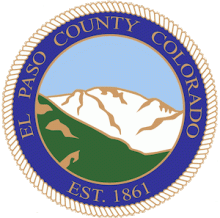Aspen Public Radio Digs Into Local SB 152 Ballot Measures
On November 4th, Aspen public radio news featured a story about local ballot initiatives to opt out of state law SB 152 in Aspen, Carbondale, and Garfield County. The western communities are three of 26 that have the measure on their ballots this election. El Paso County, Montezuma County, and the small town of Dolores are only a few others.
Justification
Reporter Wyatt Orme spoke with Jim English, head of IT at Colorado Mountain College (CMC) who described how, because of lack of redundancy, a single fiber-optic cut a year ago left the community isolated. "It took down all services between South Glenwood to Aspen, including 911 in Aspen. [It] got people’s attention," he said.
When English had the opportunity to ask the incumbent why they had never deployed another line for safety's sake, he was dismayed by the answer: “Well, how do we justify that to our stockholders?”
Freedom Found
CMC presented the opt out issue to voters last year, who handily supported the measure, giving the college the freedom to explore working with partners or on their own. SB 152, passed in 2005, was heavily lobbied by national incumbents and designed to prevent competition. It prevented CMC and any local government that had not opted out from tackling the problem of poor connectivity on their own with Internet infrastructure investment or seeking a private sector partner to solve the problem. To English - and to many of the local governments that have voted to opt out of the restrictive state law - choosing to opt out is a matter of local control and freedom:
[H]e thinks there’s historical precedent for local governments getting involved. "They built the interstate to move services and to move goods. And that’s sort of what the Internet really is. It’s...basically the new interstate," English said.
Listen to the entire story at Aspen Public Radio.



